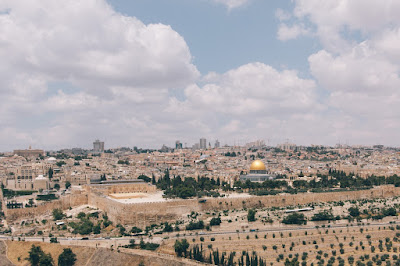by Rav Yehuda HaKohen, visionmag.org
While Moav and Midian championed a separation of 'religion' & state, Israel's mission demands that spiritual ideals be materialized on a national level so that our Torah's values be fully expressed on earth.Weekly Torah insights in the spirit of the teachings of Rav Kook, including video divrei Torah, Parshat HaShavua, Ask the Rabbi Q&As, and short clips of filmed classes
Thursday, June 24, 2021
Q&A: Proofs Are Not Enough To Sustain My Faith
Q. I grew up in a religious home, and ever since I remember myself, I have always had a relationship with G-d. During high school, I became even "stronger" in my faith, and later began studying in Yeshivat Merkaz HaRav. That year, on Yom Kippur, I suddenly found myself doubting the existence of G-d. It's now been five years since then, and I feel like a little boy lost in the big world. I tried at first to ignore my doubts, continuing my yeshiva studies as usual.
But after a long while I realized that my problems would probably never get resolved if I didn't confront them directly. I started reading books about faith, proofs, and the like, and I spoke to many rabbis. But nothing really changed; I continued to ask myself, who said this is all true?? I saw that for every proposed proof, there are those who say the opposite.
I would really like to be a believing Jew who observes all the commandments, but I know it has to start with true faith. I am very connected to Judaism, and it is still my entire life; I cannot see myself living a secular life. But I don't know what to do anymore! How much longer can I go on this way?
Thursday, June 17, 2021
Q&A: What is the basis of Religious-Zionist and Haredi approaches to the State of Israel?
Q. I would love to understand why the Religious-Zionist public views the establishment of the State of Israel as part of the Redemption process, and why the Haredi public objects to the State institutions and holds that the existence of the State is not part of the process? On what sources is each approach based?
Hukat: Complete Faith Brings Happiness
by Rabbi Zalman Baruch Melamed, yeshiva.co, translated by Hillel Fendel
This week's Torah portion of Hukat starts with the famous inexplicable statute known as the Red Heifer. We have no idea how it works that burning the Red Heifer in the precise manner prescribed by the Torah can purify us of certain impurities. Rabbi Levi Yitzchak of Berditchev taught that in general, the reasons for the Torah's commandments are not known to us – and certainly regarding this mitzvah of the Red Heifer. When we don't know the reason, he says, we fulfill the mitzvot simply because this is what G-d commanded. But in fact, our soul knows the reasons, and is very anxious to fulfill them out of an understanding of their profound significance. The body doesn't understand this, however, and therefore has no desire to fulfill them. Thus there is a struggle between the soul and the body: When the person succeeds in having his soul defeat, and thus raise up, the body, he becomes pure and sanctified…
Thursday, June 10, 2021
The Chief Rabbinate Is 100. Has It Fulfilled Its Goals?
by Rabbi Avraham Wasserman, yeshiva.co, translated by Hillel Fendel
To mark the 100th anniversary of the founding of the Chief Rabbinate of Israel, let us return to the original intentions of its founder, Rav Kook – who knew that bridging the gaps between the vision and its implementation would not be easy.
Korach: Equality, Not Uniformity
by Rav Yehuda HaKohen, visionmag.org
Our equality doesn't result from being created identical but rather from the fact that we each have equally crucial functions and important roles to play as part of Israel's greater historic mission. |
| Korah |
Thursday, June 3, 2021
Shelach: The Spies In Our Time
by Rav Berel Wein, rabbiwein.com
The land of Israel has always posed a problem for the Jewish people. On one hand, it is and always has been our national homeland, the land promised to us by the Lord from the days of our forefathers. It is the Holy Land, the most special place on Earth. On the other hand, the record of the Jewish people in the Land of Israel, and their behavior and attitudes, has often been a spotty one.






